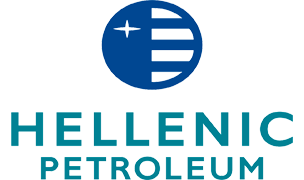INDICATOR: 203-2
Significant indirect economic impacts, including the extent of those impacts.
The financial crisis has escalated expectations for multinational enterprises to create more social value, beyond their compliance with regulations and philanthropy. Corporate responsibility has emerged as an important element in the private sector’s response to these expectations and demands.
For additional information about our contribution to society, please see “Sustainable Development & Corporate Responsibility Report 2018”, Ch. “Society” p. 86-99 and also section “Economic & Social Impact in Greece (2018)” p. 14-17
- Financial support to improve the quality of life of low-growth areas:
See indicator 203-1 for relevant projects.
In investing in Montenegro, JPK is helping the country boost its economic output and is indirectly creating new jobs. Capex of more than 29 million is expected in the next five years. - Economic impact of improving or deteriorating social or environmental conditions: see “Sustainable Development & Corporate Responsibility Report 2018”, Chapter “Environment, Energy & Climate Change” p 66-85 for actions aiming at improving environmental conditions. OKTA and the Faculty of Agricultural Sciences and Food in North Macedonia are working on an innovative eco-project for the treatment of petroleum oily sludge, deposited as a residue in the process of crude oil processing over the past 30 years. This is the first experimental project of its kind in the country and the region. We are employing a natural way of treating petroleum sludge, by using microorganisms and plants, as biological treatment, without the use of chemicals. We expect that the project’s successful implementation will yield results that will be beneficial to other companies that are facing similar problems as well.
- Availability of products and services for those on low incomes: see “Sustainable Development & Corporate Responsibility Report 2018”, Chapter “Society” p. 86-99, for fuel donations, food vouchers and prepaid fuel cards.
- Enhancing skills and knowledge amongst a professional community or in a geographical region:
More than 4,000 people visit the industrial facilities of the Group every year in Aspropyrgos, Elefsina and West Thessaloniki. Specifically, in 2018, 4,738 students and students from educational institutions of all levels were trained in our facilities and were briefed on the sectors of refining, company and employment. OKTA continued its tradition to organize an intensive internship program throughout the year. Internships have contributed to the exchange of knowledge and experience between students and local universities helping the young students to transform their theoretical knowledge into practical skills and get prepare for their further professional career. By now, nearly 100 students have completed this program.
- Jobs supported in the supply chain or distribution chain: see “Sustainable Development & Corporate Responsibility Report 2018”, Chapter “Society”, Table “Responsible buying from local suppliers” p. 96.
At OKTA:
- The company significantly improved its cash position and managed to repay all loans.
- We are continuing with road transportation, thereby supporting the truck transportation sector.
- We have outsourced product quality control
- Economic impact of change in location of operations or activities: In the process of staff recruitment, at HELPE, there is a procedure in place which is in favour of the permanent residents of the municipalities neighbouring our refineries.
- Significance of the impacts in the context of stakeholder priorities:
A 3rd survey on Materiality Assessment & Stakeholders engagement was conducted in 2018 (see “Sustainable Development & Corporate Responsibility Report 2018”, Chapter “Materiality Assessment” p. 4-5 and “Materiality Issues” p. 26-27 based on a questionnaire and interviews with stakeholders inside and outside the company, and a Qualitative & Quantitative Survey (Company Reputation Monitor), in local communities, took place in 2014.
Such surveys, regular communication and consultation are used to determine the investment in infrastructure and other actions for the benefit of local communities and to understand the significant indirect effects locally. Assessing the findings resulted in relevant activities planning. It has been recorded that local communities anticipate actions which focus on supporting the unemployed, health services, and support of the elderly and vulnerable groups in general. Moreover, during the planning phase of new investments, care is taken in regards to the direct and indirect impacts of future actions.
